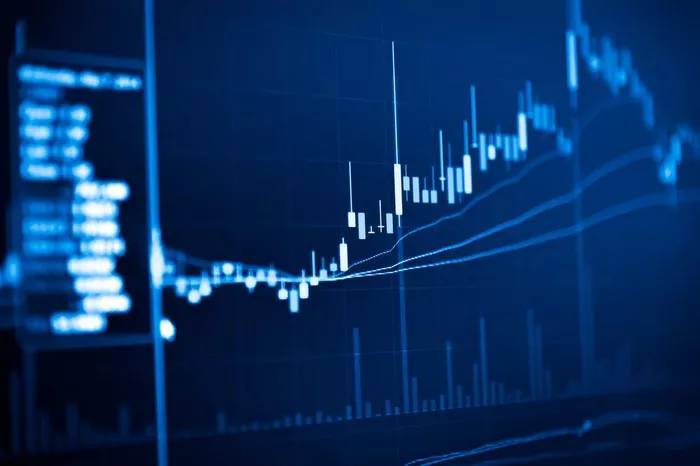In the realm of financial markets, futures contracts play a crucial role in facilitating price discovery, risk management, and investment opportunities for market participants. Futures contracts, often simply referred to as “futures,” are standardized agreements to buy or sell an asset at a predetermined price on a specified future date. These contracts are traded on regulated futures exchanges and serve various purposes for traders, investors, hedgers, and speculators. In this article, we’ll delve into the point of futures trading, exploring the key purposes and benefits of engaging in futures markets.
Price Discovery
One of the primary purposes of futures trading is price discovery. Futures markets provide a transparent and efficient mechanism for determining the future price of an underlying asset, based on the collective expectations and actions of market participants. By aggregating supply and demand dynamics, futures prices reflect market sentiment, fundamental factors, and macroeconomic conditions, allowing investors to assess fair value and make informed decisions. As futures contracts are traded publicly on exchanges, prices are readily available and serve as benchmarks for cash markets, options pricing, and risk management.
Risk Management
Another key purpose of futures trading is risk management. Futures contracts enable market participants to hedge against price risk and protect against adverse price movements in the underlying asset. Hedgers, such as farmers, producers, and manufacturers, use futures contracts to lock in prices for future delivery of commodities, currencies, or financial instruments, thereby mitigating exposure to price volatility and ensuring predictable revenue or input costs. By taking opposite positions in futures contracts, hedgers can offset the risk of adverse price movements in their underlying business operations.
Leverage and Capital Efficiency
Futures trading offers significant leverage and capital efficiency compared to trading the underlying asset directly. With futures contracts, traders can control a larger position with a relatively small initial investment, known as margin. This leverage amplifies both potential profits and losses, allowing traders to maximize returns on their capital. Additionally, futures markets offer high liquidity, meaning that positions can be entered and exited easily without significant price impact, enhancing capital efficiency and facilitating active trading strategies.
Portfolio Diversification
Futures trading provides an opportunity for portfolio diversification by offering exposure to a wide range of asset classes, including commodities, equities, fixed income securities, and currencies. By incorporating futures contracts into their investment portfolios, investors can achieve diversification benefits, reduce overall portfolio risk, and enhance long-term returns. Futures markets also offer unique trading opportunities and alternative investment strategies that may not be available through traditional asset classes, allowing investors to access new sources of alpha and portfolio diversification.
Speculation and Trading Opportunities
For speculators and traders, futures markets offer abundant trading opportunities and the potential for profit in both rising and falling markets. Speculators aim to profit from price movements in futures contracts by taking directional positions based on their analysis of market trends, technical indicators, and macroeconomic factors. Futures markets provide liquidity, transparency, and 24-hour trading access, allowing traders to capitalize on short-term price fluctuations and execute trading strategies with precision and speed. Additionally, futures markets offer a wide range of trading instruments, including futures spreads, options, and derivatives, providing flexibility and versatility for trading strategies.
Arbitrage and Price Efficiency
Futures trading contributes to price efficiency and market liquidity by facilitating arbitrage opportunities and eliminating price disparities between related markets. Arbitrageurs exploit price differentials between futures contracts and their underlying assets, such as spot markets or related futures contracts, to capture risk-free profits. By buying low and selling high (or vice versa) in different markets simultaneously, arbitrageurs help align prices and maintain market efficiency. As a result, futures markets tend to exhibit tight bid-ask spreads, minimal price discrepancies, and efficient price discovery mechanisms.
Regulation and Risk Management
Futures trading operates within a regulated framework overseen by government agencies and self-regulatory organizations, ensuring market integrity, investor protection, and fair competition. Regulators establish rules and standards for futures exchanges, clearinghouses, and market participants to promote transparency, stability, and
orderly trading. Additionally, futures exchanges implement risk management measures, such as margin requirements, position limits, and market surveillance, to mitigate systemic risk and safeguard market integrity. By adhering to regulatory guidelines and risk management practices, futures markets provide a secure and trustworthy environment for participants to engage in trading activities.
Conclusion
In summary, futures trading serves multiple purposes for market participants, including price discovery, risk management, portfolio diversification, speculation, and arbitrage. Futures markets offer liquidity, transparency, and efficiency, providing opportunities for investors, hedgers, speculators, and arbitrageurs to achieve their financial objectives and manage exposure to price risk. By understanding the point of futures trading and harnessing the benefits of futures markets, market participants can navigate the complexities of financial markets and capitalize on opportunities in an ever-changing global economy.

